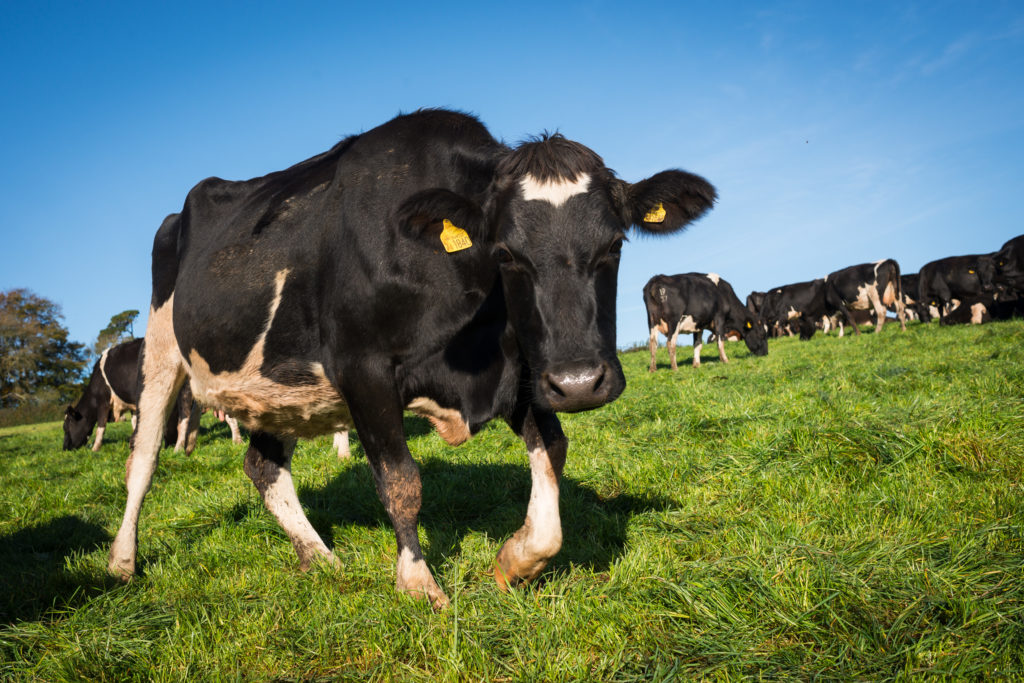
The dairy industry in the UK has experienced a transformative wave of technological advancements in recent years, reshaping operations and efficiency. From AI-powered solutions to innovative data analytics, technology has become a prevalent element in modern dairy farming practices. In the rapid integration of technology into the UK dairy sector, the importance of robust contracts between dairy farmers and technology suppliers cannot be underestimated. These contracts govern critical aspects such as uptime guarantees, data provision and use, and service levels, ensuring seamless operations and safeguarding the interests of both parties.
Technological Advancements in Dairy Farming:
Below are just some of the technological advancements available in the UK dairy farming industry:
Automated Milking Systems (AMS): AMS, including robotic milking machines, have revolutionised the milking process. These systems can be programmed to elect milking times that are best suited to the cows, reducing stress and improving overall herd health. They also provide real-time data on milk quality and quantity, aiding in better management decisions and enabling farmers to spot any issues quickly.
Precision Livestock Farming (PLF): PLF utilises sensors and monitoring devices to track various parameters such as feeding behaviour, activity levels, and health status of dairy cattle. This data helps farmers detect early signs of illness, optimise feeding regimes, inform sustainability and enhance breeding programs for improved productivity.
Data Analytics and Management Systems: Advanced software solutions enable dairy farmers to collect, analyse, and interpret vast amounts of data from multiple sources, including milk production, animal health records, and environmental conditions. By harnessing actionable insights, farmers can optimise operations, reduce waste, and increase profitability.
Legal Considerations:
Although technology can increase efficiencies, increase sustainability and profit – it is not without risk, and it is important to carefully review the terms of service with your software supplier to ensure that you know where you stand should something go wrong, and to protect your sensitive business information.
Please see just some of the key considerations below:
Uptime Guarantees: once implemented, the aforementioned automated systems become an essential part of daily operations for farmers. It is therefore fundamental that any service contract with the system supplier includes uptime guarantees to ensure that the systems are operational for the majority of the time; minimising disruptions to farm activities. It is also important that any maintenance to the system is conducted outside of core business hours for the farmers. Any such contracts should clearly specify minimum uptime percentages and penalties for downtime exceeding agreed-upon thresholds.
Data Provision: With the proliferation of data-driven technologies, access to accurate and timely data is paramount for informed decision-making. Contracts should address data ownership, usage rights, accuracy and sharing mechanisms between farmers and technology suppliers. Farmers must ensure that they retain ownership of the data generated by on-farm systems and that suppliers adhere to strict data privacy and security protocols. In addition, it is vital for the contract to include warranties and indemnities about the accuracy of information or predictions and if artificial intelligence (AI) is used within the system, the risk of inaccuracies or “hallucinations” is even higher.
Service Levels: Service levels encompass the quality and responsiveness of support services provided by technology suppliers. Any contracts should clearly outline service level agreements (SLAs) detailing how support requests should be made, response times, resolution times and escalation procedures. SLAs should also define performance metrics and benchmarks for evaluating service quality, such as mean time to repair and resolution times for reported issues.
In addition, if you are collaborating with a university or a business on a project – the intellectual property position becomes even more important to review and consider. Collaborations can give rise to complex intellectual property positions, and it is therefore fundamental that you take specialist legal advice before commencing such endeavours.
By establishing clear terms and obligations, contracts can mitigate risk, disputes, and promote accountability in the implementation and maintenance of technology solutions on dairy farms.
In conclusion, as technology continues to revolutionise the UK dairy industry, dairy farmers should carefully negotiate and formalise contracts with technology suppliers to safeguard their interests, mitigate risks, and maximize the benefits of technological innovation in driving efficiency, sustainability, and profitability in dairy farming operations.
If you would like more information or advice on issues surrounding technology in the dairy industry, please contact our Technology team.
